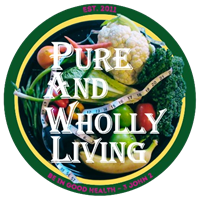Did you know that putting eggshells in your compost is great for your soil and your plants?
Eggshells are a rich source of calcium and other nutrients that are essential to plants. Eggs come from a natural source therefore, their biodegradability level is so high.
Calcium helps to enrich the soil, moderate acidity levels and provide nutrients vital for healthy plant growth. The shells are also rich in trace beneficial elements such as phosphorus, magnesium, potassium and sodium.
Shells can be particularly beneficial for plants such as tomatoes which are prone to blossom end rot. This issue is caused by a calcium deficiency. Rich in calcium, shells can be used to organically amend this deficiency. Shells can also be used to reduce tip burn in cabbages.
In many ways, using eggshells for plants has the same benefits as lime.
Be warned, you may need a lot of shells. Well ground up, you need around 150 shells to make one cup.
Other food scraps such as fruit peels, vegetable peels, and coffee grounds are also quintessential compostable foods.
This will help reduce kitchen waste and bring good sources of nutrients to your garden!
How to Prepare Eggshells
Eggs can carry salmonella. To be safe, rinse out the shells and dry them before using. Place on a sunny windowsill to dry. This should kill any salmonella present in the shell. However, if you want to be certain you can also sterilize the shells by placing them in the oven at 200 °F or 93 °C for about 30 minutes.
If you are grinding the shells, once they are dry, pulverize them with a pestle and mortar. You can also use a coffee grinder to break the shells up. Store the prepared shells in an airtight container until you are ready to use.
Add Eggshells to Your Compost Pile
Adding shells to compost piles helps to boost calcium levels. As we have already discussed, calcium is an important nutrient for growing plants. It helps them to build cell walls, grow quickly and prevents blossom end rot.
There is no need to crush the shells before composting but it can help them to break down more quickly. You can also use a compost grinder. Remember to rinse out the shells before adding them to the compost heap. This gets rid of the smell and prevents animals from being attracted to your compost.
How are you thinking green for Earth Day this year?
Sources: Best Choice Products; Happy DIY Home
